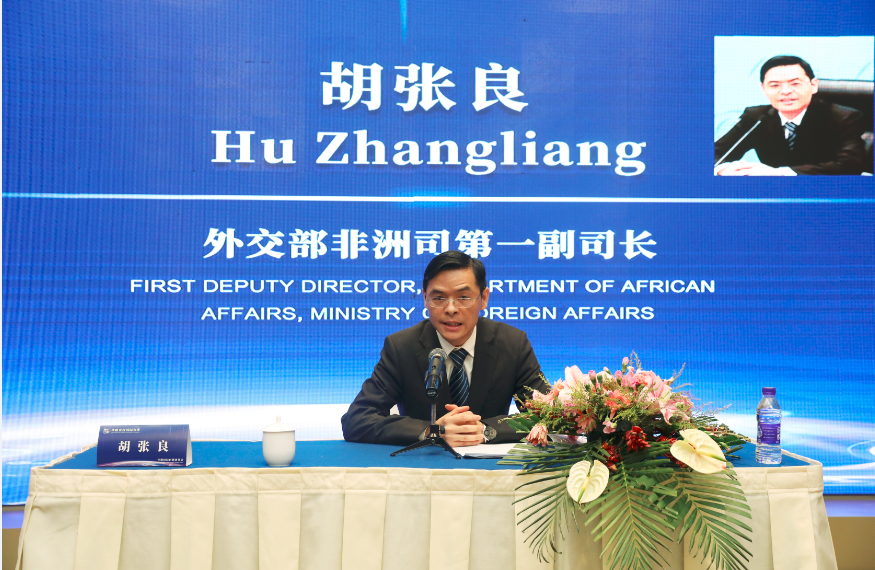January 10,
2019, Hu Zhangliang, the first deputy director of the African Department of the
Ministry of Foreign Affairs, attended the First Seminar on International
Strategic Issues hosted by Golden Bridge on Silk Road International Think Tank
and presented opportunities for China-Africa relations and China-Africa
cooperation and challenges. He delivered guiding suggestions on how Chinese
private enterprises can better enter Africa.

Hu
Zhangliang, First Deputy Director, Department of African Affairs, Ministry of
Foreign Affairs
Hu Zhangliang
believes that China-Africa relation has entered a golden age of comprehensive,
rapid and in-depth development. It shows the following: Sino-African strategic
mutual trust has reached the highest level of history. The economic ties
between China and Africa are unprecedentedly closely, and the layout of
China-Africa cooperation is more perfect. It has successively completed short
versions of politics, economy, trade and humanities.
Hu Zhangliang
also pointed out that in the new era, changes in the African situation and
multilateral relations have brought new problems and challenges to China-Africa
cooperation. First, the political economy in Africa is changing. Some countries
are in a period of political and social transformation and economic hardship.
For example, Ethiopia, South Africa and other countries are facing political
turmoil; Africa's concept of economic appeal has changed, and more emphasis has
been placed on labor issues and environmental protection issues. In addition,
African society has become more diversified, and NGOs, trade unions, and media
cannot be ignored. Second, the urgency of the transformation and upgrading of
China-Africa cooperation is mainly due to the following three major
characteristics: China-Africa cooperation is transformed from a government-led
operation to a market operation, from commodity trade to capacity cooperation,
and from engineering contracting to investment operation integration. At the
same time, some African countries blindly applied for loans, pushing up debt
risks. Third, third-party interference has increased, especially in the West.
More and more public hegemony and malicious attacks have emerged, such as
speculation on debt, speculation in China’s plundering of African resources and
speculation in our country’s approach to Africa, such as neocolonialism.
Faced with
the above problems, Hu Zhangliang mentioned that Chinese private enterprises
need to do the following when they enter Africa: adhere to the correct policy concept,
understand African customs and practices, strictly abide by local laws and
regulations, strengthen safety awareness, and strengthen contact with local
trade union associations.
Finally, Hu
said that China-Africa relations are showing unprecedented new developments.
Private enterprises have always played an important role in China-Africa
cooperation. They should further seize opportunities and adhere to the concept
of sincere and tolerance. In addition, we will increase the level of
participation in cooperation and make new contributions to China-Africa
cooperation.




